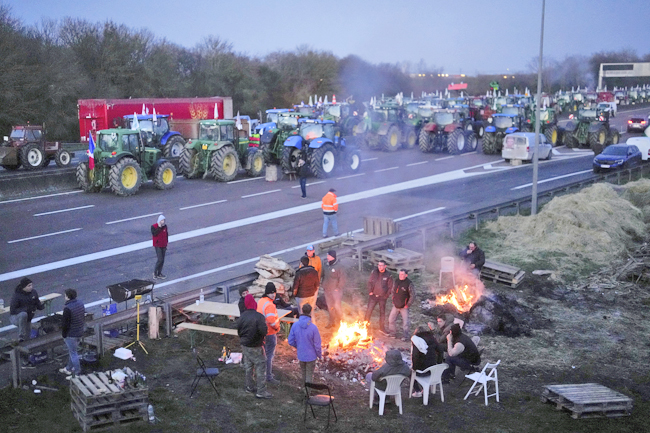PARIS (AP) – French farmers protested against a trade deal that would increase agricultural imports from South America, saying it hurt their livelihoods.
The European Union (EU) and the Mercosur trade bloc, composed of Brazil, Argentina, Paraguay, Uruguay and Bolivia, reached an initial agreement in 2019, but negotiations stumbled due to opposition from farmers, and some European governments, leading to sweeping rallies where they particularly expressed worry about the use of pesticides in South American produce.
Tuesday’s protest in Aurillac, in southern France, was the start of a fresh wave expected to spread among the European agricultural community amid concern that the deal could be finalised at the G20 summit in Brazil on November 18-19 despite the French Minister of Agriculture Annie Genevard, saying it was “highly unlikely”.
A group of more than 600 French lawmakers also published an open letter in Le Monde, telling the EU Commission President Ursula von der Leyen that the conditions for adopting an agreement with the Mercosur bloc “have not been met”. Last week, French protesters blocked the state building in the western commune of Niort, while on Monday, the Copa-Cogeca European farmers’ group sent a letter to von der Leyen, urging her to reject the Mercosur deal and adopt “a coherent trade policy”.
Meanwhile, France’s three biggest farming unions have vowed action: The FNSEA, France’s largest, has called for nationwide protests once the winter sowing season ends in mid-November. Coordination Rurale has promised “an agricultural revolt” starting on November 19 in Auch and Agen, two cities in the Southwest of France, while the Confédération Paysanne, the third-largest union, known for its anti-globalisation stance, is also planning its move against “free trade agreements.”
Farmers in Belgium have also called for demonstrations close to the EU headquarters in Brussels on Wednesday.
European farmers’ apprehensions stem from what they say are the too-strict EU environmental regulations they follow while the Mercosur deal could flood the market with imports from South America which are produced under lower environmental and labour standards, according to the President of Coordination Rurale Véronique Le Floc’h.





